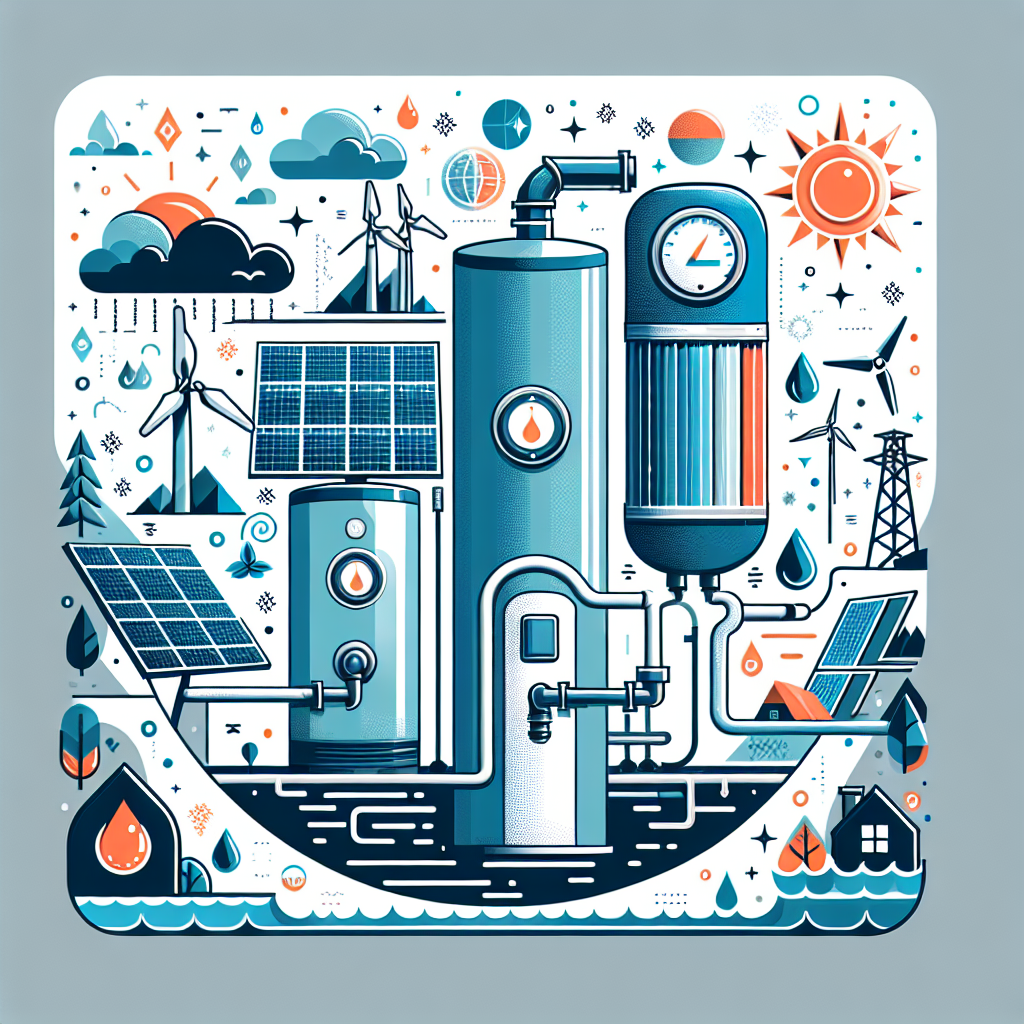In an age where sustainability is not just a trend but a necessity, many homeowners are seeking out innovative solutions to reduce their carbon footprints. One area often overlooked is water heating. The good news is that there are several renewable energy options available to meet your water heating needs while also being environmentally friendly. This article will guide you through the various renewable energy sources for water heating, their benefits, and considerations for your home.
Understanding Water Heating Needs
Before diving into renewable options, let’s take a moment to understand your water heating needs. On average, heating water accounts for approximately 18% of the energy use in a typical home, according to the U.S. Department of Energy. This significant energy consumption creates an excellent opportunity for homeowners to switch to more sustainable methods.
Solar Water Heating
How It Works
Solar water heating systems utilize solar panels—either flat-plate or evacuated tube collectors—to harness energy from the sun. These systems work by transferring heat from the solar collectors to water in a storage tank, making it available for your daily needs.
Benefits of Solar Water Heating
- Cost Savings: Although the initial installation cost can be high, many homeowners start to see significant energy savings within a few years.
- Environmental Impact: Solar energy is clean and renewable, helping to reduce greenhouse gas emissions.
- Low Maintenance: Once installed, solar water heaters require minimal maintenance.
Considerations
- Initial Costs: The upfront investment can be substantial, though state and federal incentives may help.
- Sunlight Availability: The effectiveness of solar water heaters depends on the amount of sunlight your location receives.
Heat Pump Water Heaters
How It Works
Heat pump water heaters (HPWH) operate by transferring heat from the air or ground to heat water instead of generating heat directly. They work best in moderate climates, making them an ideal choice in areas not subject to extreme cold.
Benefits of Heat Pump Water Heaters
- Energy Efficiency: Heat pumps can be two to three times more energy-efficient than traditional electric water heaters.
- Long Lifespan: HPWHs typically last longer than conventional water heating systems, resulting in reduced replacement costs over time.
Considerations
- Installation Complexity: Heat pump systems may require additional modifications to your home’s electrical and ventilation systems.
- Temperature Sensitivity: They perform best in temperate climates, so homeowners in extreme weather areas may need supplementary heating.
Biomass Water Heating
How It Works
Biomass water heating systems use organic materials (like wood pellets, chips, or agricultural waste) to produce heat. These systems can be designed as standalone units or integrated into existing heating systems.
Benefits of Biomass Water Heating
- Sustainability: Utilizing organic materials helps recycle waste and reduces reliance on fossil fuels.
- Availability: Biomass fuels can often be sourced locally, supporting local economies.
Considerations
- Storage and Maintenance: Biomass systems typically require more maintenance than other systems and adequate space for fuel storage.
- Emissions: While more sustainable than fossil fuels, burning biomass can still produce emissions, so efficient operation is key.
Choosing the Right Option for Your Home
Conduct an Energy Audit
Before making any decisions, consider conducting an energy audit of your home. Knowing your current energy consumption can provide invaluable insights and guide your choice of renewable water heating. Look for areas where you can improve energy efficiency too, such as insulation and appliance upgrades.
Consult with Professionals
Each renewable energy option has its strengths and weaknesses. Consulting with professionals can help you determine the best fit for your specific needs and situation. Contractors can also assist with installation, maintenance, and choosing products eligible for rebates and incentives.
Embrace a Sustainable Lifestyle
By exploring renewable energy options for your water heating needs, you’re not just upgrading your home, but also participating in a broader movement toward sustainability. This new approach can contribute significantly to reducing your carbon footprint, saving you money in the long run, and promoting a greener planet for future generations.
Conclusion
Switching to renewable energy sources for water heating is an investment—not just in your home but in your lifestyle. Whether you choose solar, heat pump systems, or biomass options, these technologies can offer substantial benefits. As the world moves toward greener solutions, now is the perfect time to embrace change and make a meaningful impact both for yourself and for the environment. So, take that first step toward energy efficiency today!


